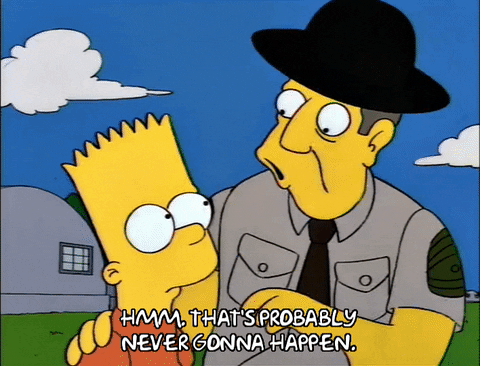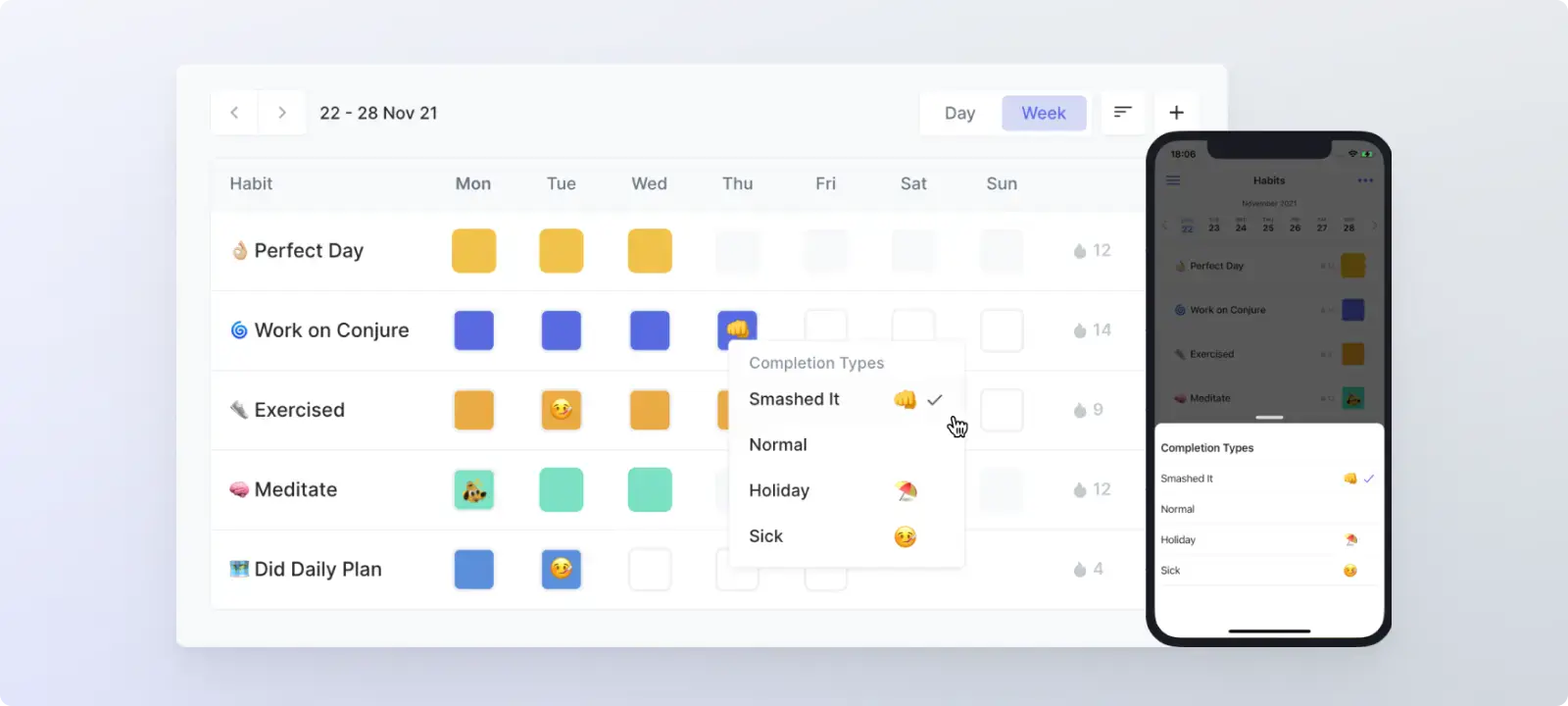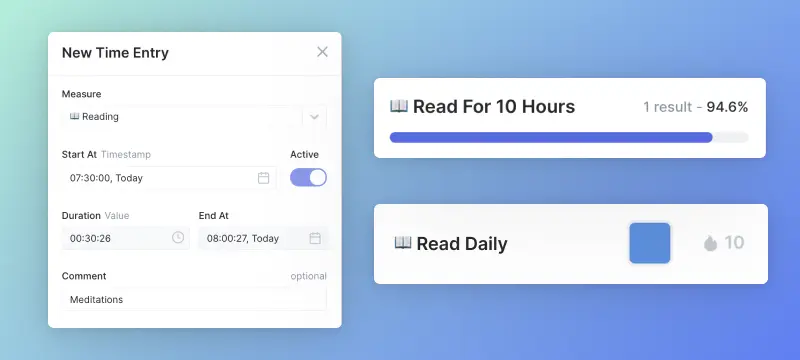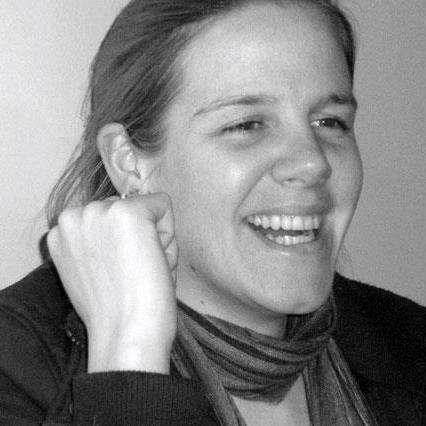Habits
Form, build and maintain habits. Use simply or sophisticatedly, with automation and customization.
Learn More →Time Tracking
Seamlessly track time on web and mobile with minimal friction. Use to complete Habits and Objectives.
Learn More →Measures
The data layer powering the wider ecosystem. Easily track manually or automatically with integrations.
Learn More →Objectives
Define success and then achieve it through Habits, Time Tracking, Measures and Integrations.
Learn More →
10 Books on Procrastination to Help You Stop Stalling
It's happened to all of us at some stage in our lives—there's something that you really have to do, but you really don't want to, so you find a bunch of random, insignificant things to do to keep you busy. For example, you could be reading an article about books on procrastination instead of doing the important task you are avoiding.
The question is, do you procrastinate every day or only every now and then when you feel insecure or afraid? Answering that question will tell you whether you're a serial procrastinator or just an occasional one.
Procrastination is the avoidance of discomfort by choosing to do something more pleasurable than the task at hand. This discomfort may be in the form of anxiety, fear, boredom, or feeling overwhelmed.
What most people don't understand is that procrastinators are seldom lazy. If you think about a situation where you have put off an important task, you'll probably find that you did so because the task made you feel uncomfortable in some way.
Were you feeling unsure of yourself, like the task was too big for you to handle? Afraid to mess up or afraid to complete the task because of what comes next? There are many reasons why we put off things we're meant to be doing, and it doesn't make you lazy or a bad person.
Understanding procrastination is an essential step toward putting an end to it in your personal and work life. Check out this list of 10 self-help books on procrastination to help you overcome the habit!
... yes we recognize the irony of advising you to read a book on procrastination to solve your procrastination. Being frank, you might never read it. But please prove us wrong and make it to the end of this article, and then to the end of one of these books.
What is procrastination?
Procrastination is the act of putting things off until later that should be done now. Its consequences can range from fairly benign to quite dire, depending on how long you put a task off for and the importance of the task.
Procrastination is not always a conscious act. It is easy to find yourself letting hours go by without even realizing it, while you mess around doing unimportant tasks or things that have no meaning or value.
That's why it's important to understand the habit and recognize it in yourself, so you can learn to stop procrastination immediately and avoid future temptation.
To that end, even knowing you may never get around to reading them, we've listed the 10 best books on procrastination below. We hope they help you overcome your procrastination tendencies.
The 10 best books on procrastination
1. Getting Things Done: The Art of Stress-Free Productivity—David Allen (2002)

Have you ever wished you had one of those perfectly-organized, smooth-flowing lives we see others apparently living? Chances are it's just a facade, and they're just as much of a mess as you are, but that doesn't stop us from wishing for it anyway.
Getting Things Done is a book on overcoming procrastination by reorganizing your life into something you can control. With his experience in management and coaching, and his use of well-known methods like the 4 Ds of time management, productivity consultant David Allen is the perfect person to teach us how to do this
Stop putting off your goals
Take control of your time with Conjure and start achieving your goals
2. Atomic Habits: An Easy & Proven Way to Build Good Habits & Break Bad Ones—James Clear (2018)

If you're looking for a book that is clearly written, easy to understand, and well-researched that will put you on the path toward personal improvement and better habits, you can't go wrong with Atomic Habits.
This book is about how the smallest changes can have great results, and in it, habit formation expert James Clear tells us exactly how to implement this idea—mastering the little behaviors that create great change in our lives.
If you're worried that you lack the motivation and drive to put these ideas into place, James has covered that, too! This book is an excellent choice for people who are ready to get started on making a change.
3. The Power of Now: A Guide to Spiritual Enlightenment—Eckhart Tolle (2004)

The Power of Now is not specifically about procrastination, but by teaching us the importance of being fully present in each current moment, Tolle encourages us to let go of the past regrets and future anxieties that so often contribute to the habit of procrastination.
The book tells us that by cultivating awareness and mindfulness, we can gain insights into our own patterns of resistance, avoidance, and procrastination.
The Power of Now is an excellent book for those on a more spiritual journey toward self-betterment. It offers a perspective that can help you develop a deeper understanding of yourself, your thoughts, and your behavior, helping you to address any underlying issues related to procrastination.
4. The Power of Habit: Why We Do What We Do in Life and Business—Charles Duhigg (2014)

If you've ever tried to do research into how habits work and how they affect procrastination tendencies, you might have found yourself completely overwhelmed by the vast amount of information out there. It's difficult to even begin to sort through it, let alone make sense of it.
Luckily, Charles Duhigg, an award-winning business reporter, has already done the work for you. _The Power of Habit _discusses a number of scientific discoveries around habits, their effect on our behavior, and how we can work toward changing them.
The basis of this forward-thinking book, with its fresh and bold perspective, is that, no matter what it is we are trying to accomplish, the answer to getting it right is in understanding and changing our self-destructive habits.
Realize your potential
Reduce procrastination and increase success with our powerful habit and time tracking platform
5. The Now Habit: A Strategic Program for Overcoming Procrastination and Enjoying Guilt-Free Play—Neil A. Fiore (2007)

The Now Habit by Dr. Neil Fiore is an incredibly useful book that is the result of the author's expertise as a top productivity expert and licensed psychologist. It's not just about beating procrastination—it's about reclaiming your time, reducing stress, and finding a healthy balance between work and play.
In this book, Dr. Fiore shares a number of practical strategies that can help you reduce procrastination, understand why you put things off, and develop a positive mindset that will help you do better in the future.
This book will help you lower your stress levels and anxiety, limit or stop your procrastination, be less perfectionist, and find more time in your life for "guilt-free play." It does this by teaching you to get started on tasks sooner and finish them faster.
By learning how to start tasks promptly, take small steps, and overcome self-imposed barriers, you can boost your productivity and lead a more fulfilling life. This book is a valuable resource for anyone looking to overcome procrastination, increase productivity, and find more joy in both work and leisure.
6. Eat That Frog!: 21 Great Ways to Stop Procrastinating and Get More Done in Less Time—Brian Tracy (2017)

There are some strange expressions in the English language, and "eating the frog" is definitely one of them. Don't panic—it has nothing to do with actually consuming amphibians.
The original expression states that if your job is to eat a frog, you'd best do it first thing in the morning. It means that you should always get the most challenging task out of the way as quickly as possible.
These tasks are often the ones that have the greatest impact on our lives, which is why we should do them first rather than leaving them for later, as procrastinators often do.
Through his practical advice and proven strategies, Tracy guides us through how we can organize our lives and accomplish important tasks more efficiently. He emphasizes the importance of prioritizing our tasks based on their significance and impact.
He states that by focusing on the most critical tasks early on, we can overcome procrastination tendencies and increase our productivity.
The book offers practical tips for setting goals, breaking tasks into manageable steps, and maintaining focus when the inevitable distractions come along.
By following Tracy's advice, we can develop the mindset and habits necessary to tackle our biggest challenges head-on, ultimately leading us to greater success, fulfillment, and a more organized and productive life.
7. Solving the Procrastination Puzzle: A Concise Guide to Strategies for Change—Timothy A. Pychyl (2013)

Ironically, what often stops people from reading books like these that can help them change their lives is time. When you already feel overwhelmed, it's hard to imagine finding time in your day to read a book. That's why this particular book is so useful.
Solving the Procrastination Puzzle brings clarity to many of the questions we have about how to reduce procrastination. It is a concise guide to changing your habits that will help you eliminate procrastination from your life by presenting you with a number of precise and easy-to-implement strategies for change.
If you are someone who tends to sabotage your own goals with procrastination and lack of motivation, this book is the perfect quick read—that incorporates science and humor—to set you on the path toward change.
8. The Productivity Project: Accomplishing More by Managing Your Time, Attention, and Energy—Chris Bailey (2016)

If you're looking for a book written by someone who is talking from their own experience—not just from their studies or the experiences of other people—Chris Bailey is the author for you.
As a young man, just out of business school, Bailey took a year off from normal life to conduct a series of experiments on himself that would give him the insights and self-knowledge he shares with us in The Productivity Project.
He came up with numerous little experiments that he believed would have an impact on his productivity and overall life. He wrote about his experiences in his blog and later put them into book form for us to benefit from.
Among the experiments he conducted were things like:
- Getting minimal sleep for a few weeks
- Completely isolating himself from the world for 10 days
- Working 90 hours a week
- Cutting out sugar and caffeine completely
- Limiting his smartphone use to 1 hour a day for 3 months
- Waking up early every day for 3 months after always having been a late riser
- Putting on 10 lbs of muscle mass
As a result of his experiments, Bailey has some interesting and often counterintuitive insights for us, which he shares in this book.
9. How to Stop Procrastinating: A Simple Guide to Mastering Difficult Tasks—S.J. Scott (2018)

This book is an invaluable resource for anyone who is wanting to overcome procrastination and learn some effective strategies for tackling challenging tasks. With his clear and concise writing style, Scott provides his readers with practical guidance and easy-to-follow steps that will help prevent the habit of postponing important tasks.
How to Stop Procrastinating takes a deep look at the underlying causes of procrastination and offers insights into the psychological and emotional aspects of ourselves that contribute to this behavior.
Drawing from both his research and personal experience, the author emphasizes the importance of taking small, manageable steps toward completing any task, highlighting the fact that consistent effort has a cumulative impact.
Scott also addresses a number of common obstacles, like lack of motivation and difficulty initiating tasks, providing us with practical solutions and techniques we can use to overcome these barriers.
With its focus on habit formation and the cultivation of a proactive mindset, How to Stop Procrastinating empowers us to break free from the cycle of delay and work towards a more productive and fulfilling approach to work and life.
10. Self-Compassion: The Proven Power of Being Kind to Yourself—Kristin Neff (2015)

This book is not specifically about overcoming procrastination or improving time management, but its emphasis on the practice of self-compassion empowers its readers to overcome the self-critical tendencies that often fuel procrastination.
Self-Compassion teaches us that by being kind to ourselves, recognizing our fragile humanity, and working on being more mindful, we can break free from the cycle of self-sabotage.
In the book, Neff provides some practical exercises and personal anecdotes to guide us in developing self-compassion as a powerful tool for self-improvement.
With its compassionate perspective, Self-Compassion is a transformative read for anyone wanting to understand their inner struggles and learn the art of self-acceptance, along with its importance in ending habits like procrastination.
Frequently asked questions
What are the 6 types of procrastinators?
Most procrastinators fall into one or more of the following categories, and recognizing which category or categories you fit into will help you on your journey toward overcoming procrastination.
1. The Perfectionist
- This person strives for perfection and is afraid of making mistakes.
- Procrastinates out of fear of failure or criticism.
- Often gets caught up in overthinking and excessive planning.
2. The Dreamer
- This type of procrastinator is imaginative and ambitious.
- Struggles with turning ideas into action.
- Tends to procrastinate by getting lost in daydreams.
3. The Worrier
- This person has high levels of anxiety and self-doubt.
- Worries about making the wrong decision or facing negative consequences.
- Procrastinates to put off feelings of anxiety but only feels it worse later on.
4. The Crisis Maker
- This person lives for pressure and tight deadlines.
- Leaves everything until the last minute, relying on the adrenaline rush to help them get it done.
- May experience temporary boosts in productivity but will have long-term stress.
5. The Defier
- This procrastinator rebels against authority or expectation.
- Procrastinates in defiance of authority.
- Needs to feel a sense of autonomy and control to overcome procrastination.
6. The Overwhelmed:
- This person is overwhelmed by the sheer volume or complexity of the tasks before them.
- Struggles to prioritize their tasks or take the first step toward completing them.
- May benefit from breaking tasks into smaller, more manageable steps.
Is procrastination a mental habit?
Yes, procrastination is considered a mental habit because it involves a repetitive pattern of delaying or avoiding tasks, even when the procrastinator is aware of the negative consequences.
The habit of procrastination often stems from an underlying psychological factor, such as perfectionism, fear of failure, or difficulty managing emotions. As such, it becomes ingrained in a person's thinking and behavior over time.
Is it possible to stop procrastination completely?
It is absolutely possible to stop procrastinating, although it can be a challenging goal. Procrastination is a complex behavior that is influenced by a number of factors, which makes it difficult to figure out.
However, it is possible to work towards stopping procrastination by using the right combination of strategies and having the right mindset. Here is a list of things you can start doing to get yourself on the right path:
- Develop effective time management skills.
- Set yourself clear, achievable goals so you can be motivated by your own progress toward them.
- Break your tasks into smaller, more manageable steps to avoid becoming overwhelmed.
- Practice self-discipline, becoming the kind of person who does what they say they will do.
- Manage distractions, learning to focus despite them.
- Address any underlying psychological barriers.
- Be mindful of your emotional state toward the task, accept it, and keep going.
- Give yourself permission to fail or be imperfect, you can also redo the work, but something is better than nothing, no matter how small.
- Minimize friction against getting started by making the first action as small and easy as possible.
By implementing these tactics, you can make good progress toward overcoming procrastination. Even if stopping it completely turns out to be difficult, the consistent effort and new self-awareness you get from making these changes will lead to significant improvements in productivity and task completion.
Do I need to read all these self-help books to overcome procrastination?

Not at all. There are a number of books on this list that can get you started, and just reading one is the first step toward the productive life you want. All it takes is getting started.
If you want to become more motivated by seeing your own progress toward your goals, we recommend using Conjure as the simplest way to track your habits, time, and goals.
Setting up habits and objectives in Conjure can boost your productivity by helping you stay on top of what you've committed to do. It allows you to set specific and measurable goals and complete them in steps and stages, like reading for just 10 minutes a day until you have finished one of these books. It also allows you to set up reminder notifications so can avoid getting caught up or overwhelmed and forgetting an important task.
The dashboard will allow you to see which tasks and habits you have completed each day or week, and easily keep track of those goals you are working towards.

What if I have trouble sticking to the advice in the book?
If you find it challenging to stick to the advice these self-help books provide, or struggle with implementing the strategies, you may want to follow some of these tips:
- Take a moment to ask yourself why you're having trouble following the advice. Are there any particular barriers or underlying beliefs that are getting in the way? Understanding the root causes can help you develop manageable solutions.
- Start with baby steps—break the advice into small, manageable steps that you are more likely to be able to follow. Focus on implementing one or two strategies at a time rather than trying to change everything at once.
- Download the Conjure app and use it to track your habits and objectives and create a sustainable routine that will help you implement these strategies.
- Adapt the advice to fit your unique circumstances and preferences. Not every strategy works for everyone, so try to tailor the techniques to suit your needs. You can even experiment with different approaches until you find what works for you.
- Reach out to friends or family who may be going through similar challenges and set yourself up with an accountability partner. Sharing your progress with someone else can help you feel more motivated and encouraged.
- Be kind to yourself and remember that change takes time. Try not to wallow in self-judgment or harsh criticism if you struggle to stick to the advice. Create a mindset of learning and growth, and be patient with yourself as you work toward making a change.
- If the advice above doesn't help and you're still struggling with implementing the advice or feeling overwhelmed, it might be worth looking for some professional guidance. A therapist, coach, or counselor can provide personalized support and guidance that takes your specific needs into account.
Remember that change is a journey, and setbacks are a normal part of the process. Be persistent and patient, and focus on making slow, realistic progress toward overcoming procrastination.
How to actually get around to reading these books
Getting around to actually reading these procrastination books might be easier said than done, but it's important to remember that procrastination is the avoidance of negative emotions. Overcoming that initial friction is the first step toward breaking the habit.
Creating habits is quick and easy with Conjure. Why not use it to track your reading habit and push yourself to read these books?
For example, you can create a habit to read at least 1 page a day or track at least 10 minutes of reading. This doesn't mean you have to be perfect, but it's a way to get yourself started with just a short session each day. Before you know it, you'll have read a page, a chapter, and eventually, a whole book.
In Conjure, you can also create an 'Emergency Mode' for your habit, like reading for just 3 minutes instead of 10 minutes if your day doesn’t go as planned. Having a minimal viable version of your habit allows you to maintain momentum and have a sense of accomplishment, which associates positive emotions with the habit.

Conclusion
Stopping procrastination can be a difficult goal to overcome, but understanding what procrastination is and why we do it is the first step toward overcoming it. The basic steps involve recognizing our self-destructive habits and turning them into productive habits.
To get yourself started, pick one of these helpful procrastination books full of practical tips and get reading. Use Conjure to track your reading habit and ensure that procrastination won't prevent you from getting through your chosen book.
...and congratulations on making it to the end of this article, hopefully without procrastinating. We didn't know if you'd make it, but you did, and evidently, we're a bad judge of character. Well done!
About Conjure
Conjure is the ultimate time management and habit tracking tool designed to help you effortlessly manage your time, develop positive habits, and transform your productivity game.
Seamlessly organize your habits, track your time, see your progress, and stay on top of your goals with Conjure.
Join Conjure today and take back control of your schedule!

